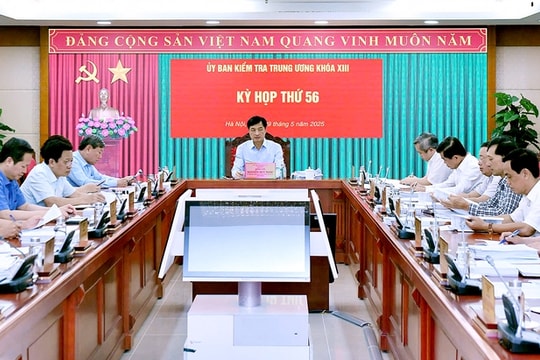Activities of the Central Inspection Commission: Intensive, resolute and specific
Regarding the recent disciplinary actions against officials, both incumbent and retired, National Assembly member Pham Tat Thang said he has seen a trend of democratization.
On November 14, the Central Inspection Committee announced the results of its 19th session, which concluded the review and disciplinary action against many leaders and former leaders of several provinces of Vinh Phuc, Gia Lai, and Dak Nong. Previously, in previous sessions, the Central Inspection Committee also announced conclusions on violations by many leaders and officials.
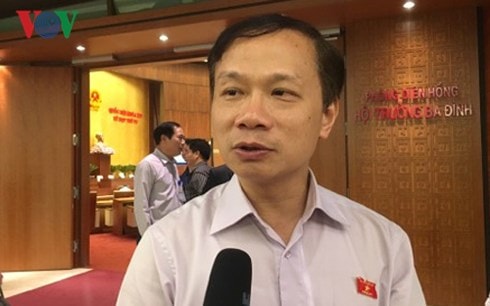 |
| Mr. Pham Tat Thang, National Assembly delegate of Vinh Long province |
Talking to reporters on the sidelines of the National Assembly, Mr. Pham Tat Thang, National Assembly delegate of Vinh Long province, said that this is a necessary task in the current period when there is general direction from the Party Central Committee and the Central Steering Committee on anti-corruption, showing the operation of the entire political system in handling violations and discipline among civil servants, including senior officials.
It clearly shows that anyone, in any position and at any time, if they have made mistakes or shortcomings, must be considered and strictly handled in accordance with Party regulations and State laws.
PV:How do the decisions and conclusions of the Central Inspection Commission in recent times reflect the General Secretary's spirit of "when the furnace is hot, even fresh wood must burn"?
Mr. Pham Tat Thang: Recently, our anti-corruption work has been pushed up a step, both in direction and leadership: close, specific, and drastic direction from the Central Steering Committee on anti-corruption.
It is this proactive, decisive, and close-knit approach that has created concrete activities in practice, and many investigations and major economic and corruption cases have been brought to justice. This direction meets the practical requirement that people and voters pay special attention to anti-corruption work.
The guiding viewpoints of the Party and State leaders have breathed new life into the fight against corruption in society. From there, people with a greater level of interest will naturally, through their own discovery and supervision, help State agencies detect corruption cases.
PV:The conclusion of the Central Inspection Commission, just issued on November 14, regarding the violations of many leaders and former leaders of a number of localities, has shown that the concept of "safe landing" may no longer exist in the period when we are improving the legal aspect of government?
Mr. Pham Tat Thang: That's right. It can be seen that in recent times, the activities of the Central Inspection Commission and the inspection system at all levels have been very intense, drastic and specific. In a short period of time, a series of decisions and conclusions of the Central Inspection Commission, including those related to central-level officials and key leaders of localities, have committed violations, including those in office and retired.
In my opinion, this is a necessary task in the current period when there is general direction from the Party Central Committee and the Central Steering Committee on anti-corruption, showing the operation of the entire political system in handling violations and discipline among civil servants, including senior officials.
It clearly shows that anyone, in any position and at any time, if they have made mistakes or shortcomings, must be considered and strictly handled in accordance with Party regulations and State laws.
PV:How do you evaluate the transparency and publicity in the disciplinary actions against officials, both incumbent and retired, in recent times?
Mr. Pham Tat Thang:Democratization is an inevitable and necessary trend of our society today, which can be clearly seen in the activities of the National Assembly. The activities of the National Assembly are getting closer to the people, through the specific activities of the National Assembly delegations and of the National Assembly deputies.
The National Assembly's parliamentary activities themselves are becoming closer to the people and more public, with more and more content of interest to voters nationwide being broadcast live on radio and television.
Previously, many contents were considered sensitive, delicate, even classified documents such as activities in the judicial field. However, at this session, discussions on judicial contents were broadcast live on radio and television.
That specific example can express a general opinion that the general trend of our society today is democratization. The leading Party is the core of the political system, so the Party needs to have specific actions to demonstrate its guiding viewpoint, and at the same time set an example for the entire political system, because the Party is exemplary, open, transparent; does not avoid, looks straight at the truth, at mistakes and shortcomings, thereby creating a driving force for the entire political system in work and it also demonstrates the consistent viewpoint of our Party that there are no forbidden zones, no concept of safe landing; everyone is equal before the law, especially civil servants and Party members who hold leadership positions need to be exemplary.
Such openness and transparency from the Party and State will create a deterrent for civil servants, requiring them to work impartially, responsibly, and to the best of their ability in accordance with the law.
PV: Thank you sir./.
According to VOV

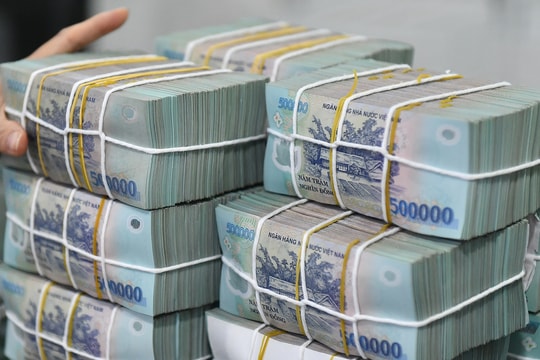

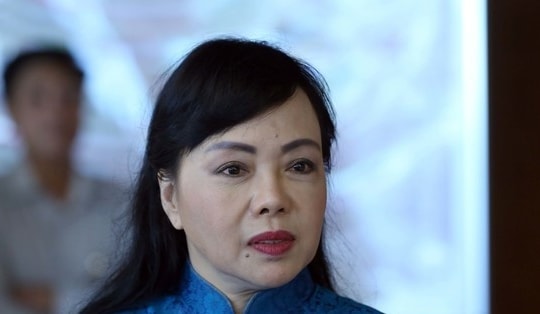
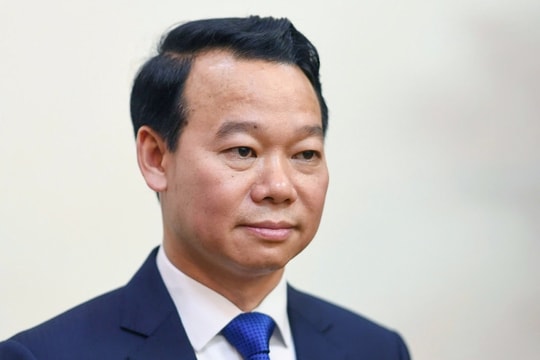
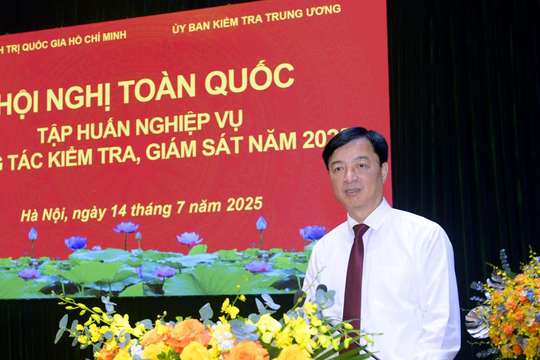
.jpg)
